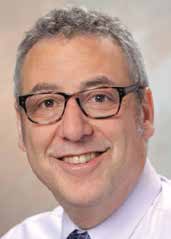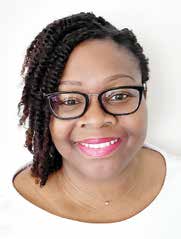Chicago, IL—It is well documented that clinical trials thus far have for the most part excluded underserved populations, and that means the results of these trials cannot be generalized to society at large. Fortunately, the federal government and medical societies have taken aim at remedying this imbalance in accrual for clinical trials. At the 2023 American Society of Clinical Oncology Annual Meeting, a session devoted to “The Future of Equitable Access to Clinical Trials” provided greater insight into pathways for including participants from ethnic/racial minorities, those from rural populations, and other individuals who have been historically marginalized when it comes to clinical trial participation.
CATCH-UP.2020 Program
Steven Gore, MD, Medical Officer, Investigational Drug Branch, Cancer Therapy Evaluation Program, National Cancer Institute (NCI), Rockville, MD, brought attendees up to date on the CATCH-UP.2020 program, a government-funded pilot project designed to increase recruitment of underserved individuals across several clinical trial sites in the United States. Dr Gore was Session Chair and is the Program Leader for CATCH-UP.2020.
The Experimental Therapeutics Clinical Trials Network (ETCTN) is the clinical trials network that performs clinical studies of agents that are approved through NCI Experimental Therapeutics. NCI collaborates with ETCTN investigators and industry/academia partners to formulate the clinical development plan for an agent in early-phase, experimental therapeutic clinical trials.
CATCH-UP.2020 is specifically designed for NCI cancer centers that are not currently part of the ETCTN but that have the ability to recruit underserved populations to clinical trials. The original goal was to reach 24 accruals per site within 1 year, and at least 50% of these had to represent underserved populations.
“The goal of this initiative is to learn and share best practices for outreach, coordination, and integration of telemedicine and other technology, and to set standards for comprehensive cancer research as a model for other research programs,” Dr Gore explained.
In October 2020, 52 ETCTN trials were opened to CATCH-UP.2020 at 8 sites across the United States. Between October 2020 and August 2022, the sites enrolled 246 patients in CATCH-UP.2020, with 52% of these individuals representing underserved populations (defined as people who have been systematically denied a full opportunity to participate in aspects of economic, social, and civic life, including minorities and areas with healthcare staff shortages).

Steven Gore, MD
The goal of [CATCH-UP.2020] is to learn and share best practices for outreach, coordination, and integration of telemedicine and other technology, and to set standards for comprehensive cancer research as a model for other research programs.—Steven Gore, MD
As a result of this initiative, Dr Gore and his team have identified factors that “seem to provide fertile ground for accrual.” These are, in descending order, persistent investigators, cancer center community outreach offices, patient navigators, community immersion, genomic data screening, and incorporating telemedicine.
Barriers to accrual for CATCH-UP.2020 clinical trials include the COVID-19 pandemic, delays due to waitlists for ETCTN trials, and a high rate of screening failures due to strict eligibility criteria for ETCTN trials.
The budget was set at $6 million for 1 year, with direct costs of $550,000 per cancer center, and $20,000 per accrual. CATCH-UP.2020 now has additional funding for another year.
“What does it take for a program like this to meet its goals? Cancer center engagement, investigator passion, effective community outreach, language/cultural appropriate patient navigators, easing patient burden through telemedicine, and financial aid for travel, plus decentralization of clinical trial operations. In short, leadership, mandates, and money,” Dr Gore explained.
Project Equity
Lola A. Fashoyin-Aje, MD, MPH, Associate Director, Science & Policy Program to Address Disparities, Oncology Center of Excellence, US Food & Drug Administration (FDA), Silver Spring, MD, discussed the FDA’s Project Equity, which addresses disparities in clinical trial participation and is aimed at clinical researchers, patient advocacy groups, pharmaceutical sponsors, and other oncology stakeholders who are interested in learning about regulatory initiatives that promote equity in oncology clinical research.
“It is important to develop a drug in study populations that reflect the diversity of the population for which it is intended. The drug needs to be characterized in the context of diverse populations to facilitate generalizability of the study results to the population affected by the disease. The hope is to generate evidence that is applicable to the US population and US medical practice, and to provide equitable opportunities to contribute to science and to benefit from scientific advances,” Dr Fashoyin-Aje explained.
Current trends in cancer drug development include expedited timelines for development and approvals based on international clinical trials in adult patients. These trials include different percentages of US-enrolled participants.
“US trials are mainly conducted at large academic centers and the entry criteria are not well-matched to the real-world population, including minorities, people from rural areas, and older patients,” she said.
It is important to develop a drug in study populations that reflect the diversity of the population for which it is intended.—Lola A. Fashoyin-Aje, MD, MPH

Lola A. Fashoyin-Aje, MD, MPH
Current select FDA guidelines call for clinical trials in all age groups, the collection of race and ethnicity data in clinical trials, diversity plans to improve enrollment of underrepresented racial and ethnic populations in clinical trials, and evaluation of gender differences.
Project Equity is a recently opened FDA Oncology Center of Excellence initiative that encompasses outreach engagement, policy development, and research. The project aims to establish and sustain partnerships with relevant communities, patient advocacy groups, and community practices; to assess patient characteristics, treatment landscapes, and outcomes; and to specify enrollment goals and facilitate accrual of diverse participants.
“Current drug development practices can perpetuate disparities in clinical trial populations. A regulatory framework is needed for prospective planning to ensure clinical trial participant diversity. Multilevel and multistakeholder action are needed to effectively and sustainably improve the evidence supporting oncology clinical care,” Dr Fashoyin-Aje told listeners.
Diversity, Equity, and Inclusion
Ana Acuna-Villaorduna, MD, Assistant Professor, Hematology and Medical Oncology, Icahn School of Medicine at Mount Sinai, New York, NY, discussed the future of equitable access to clinical trials.
She cited the following barriers that affect access to clinical trials: among providers, lack of awareness, innate bias, and lack of workforce; among patients, distrust, financial status, geography, social support, and logistics. Institutional barriers include deficient screening, poor trial matching, gaps in trial portfolios, prolonged activation times, and no periodic self-assessments. Study barriers include restrictive criteria and complex processes.
One tool that helps research teams identify and address implicit bias is called “Just Ask.” Developed by Robert Winn, MD, Director and Lipman Chair in Oncology, Massey Cancer Center, Virginia Commonwealth University, Richmond, the e-training program includes 5 modules, each 60 to 90 minutes in length. It is being used for provider education in practices and medical schools. At the patient level, providing financial assistance for travel and lodging expenses can enable accrual among the underserved.

Ana Acuna-Villaorduna, MD
If we just asked if patients were open to clinical trial participation, that would help. When marginalized communities are asked, they want to participate.—Ana Acuna-Villaorduna, MD
“We can start by asking [if a person wants to participate in clinical trials] and then we will find outcomes that we don’t expect. Implicit bias happens with healthcare providers. If we just asked if patients were open to clinical trial participation, that would help. When marginalized communities are asked, they want to participate,” said Dr Acuna-Villaorduna.

